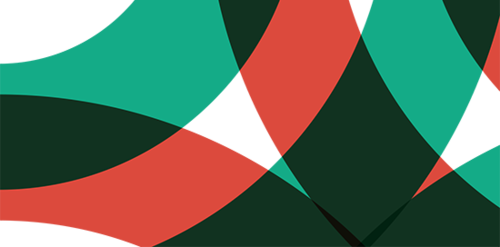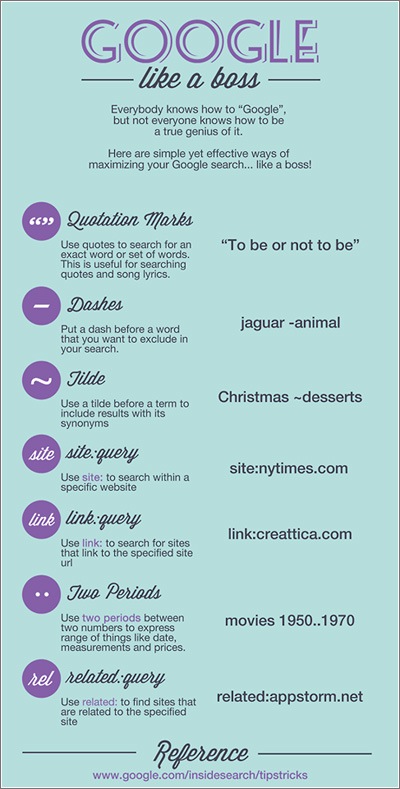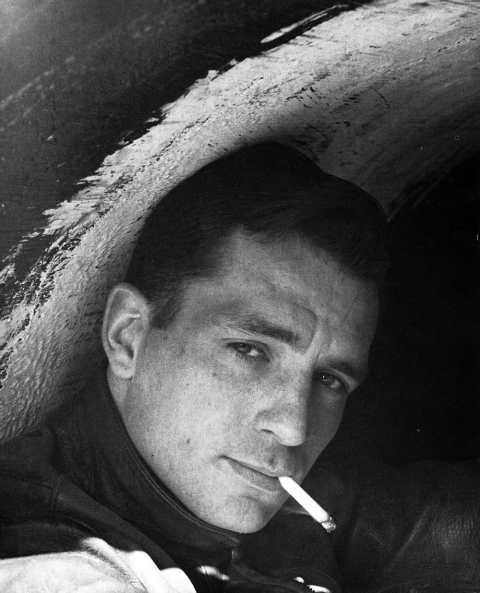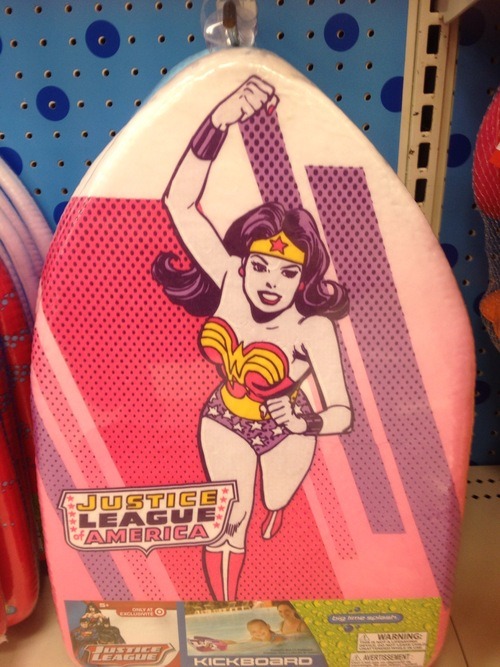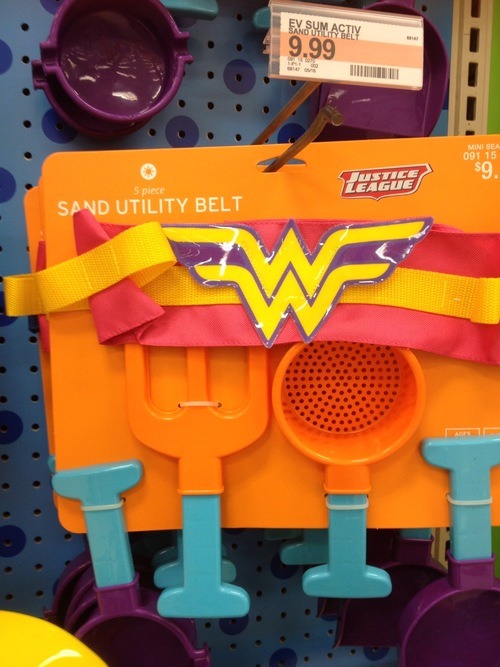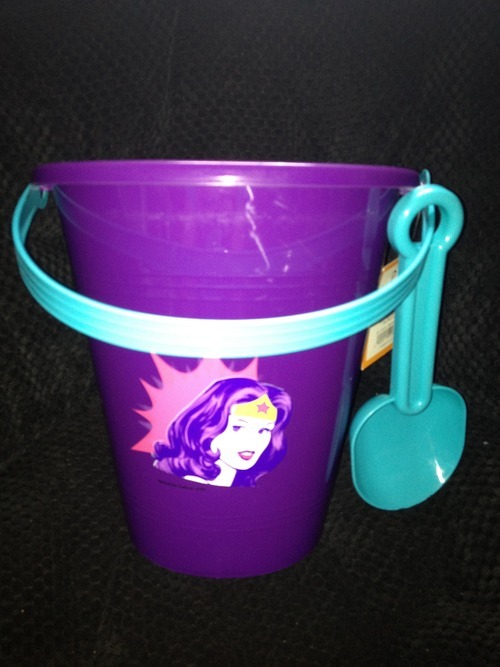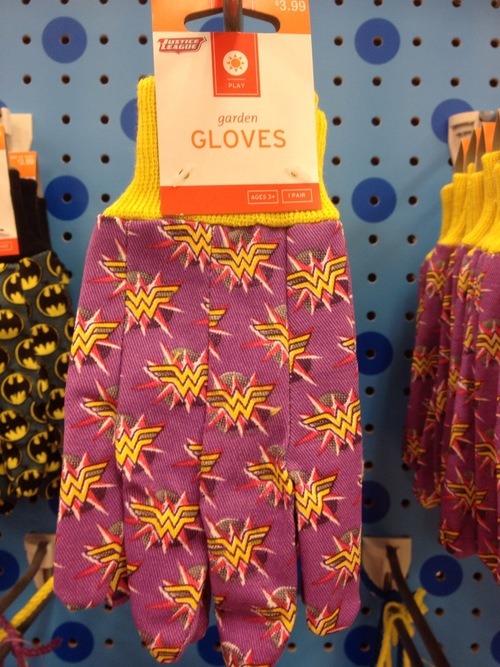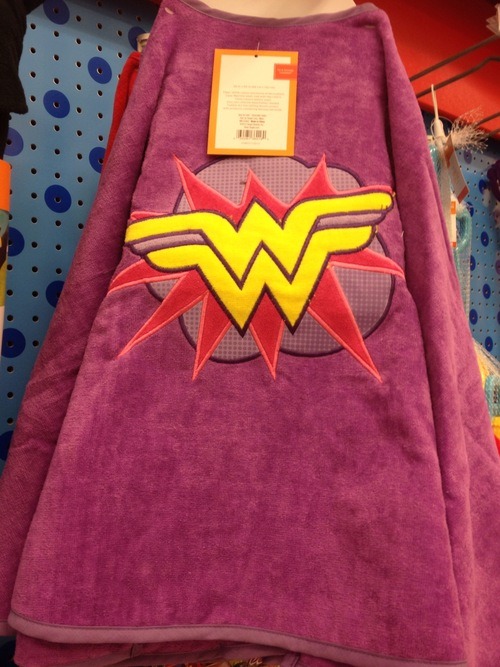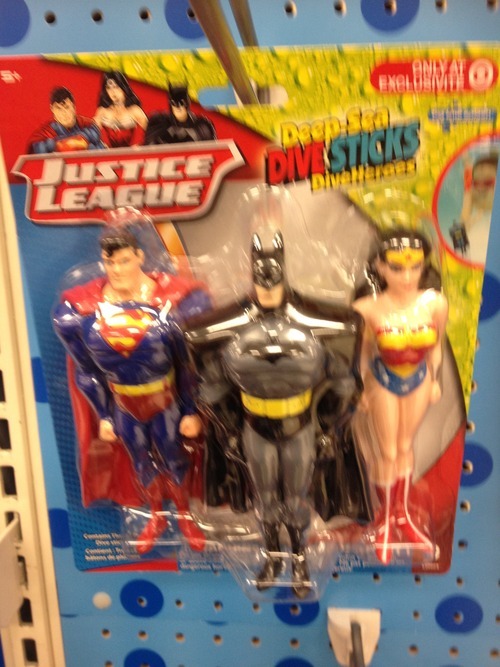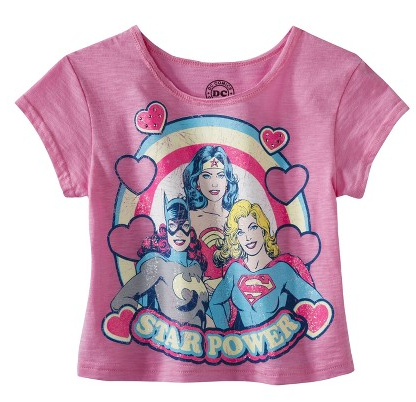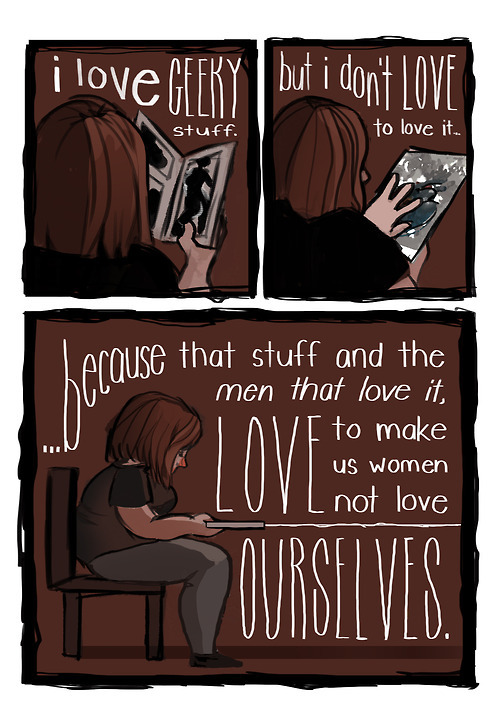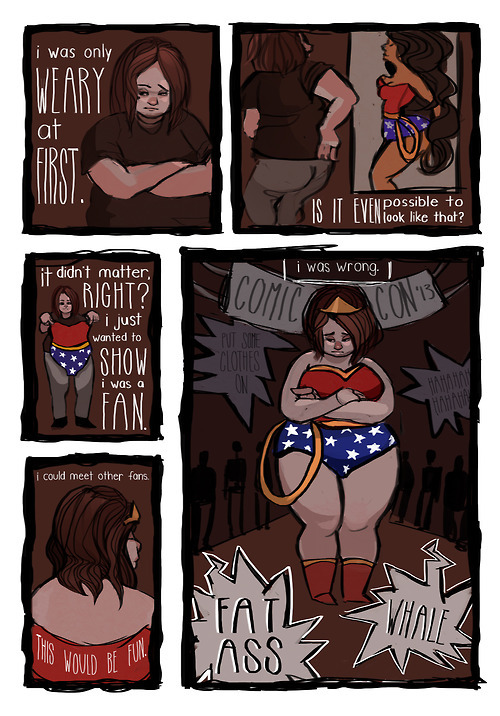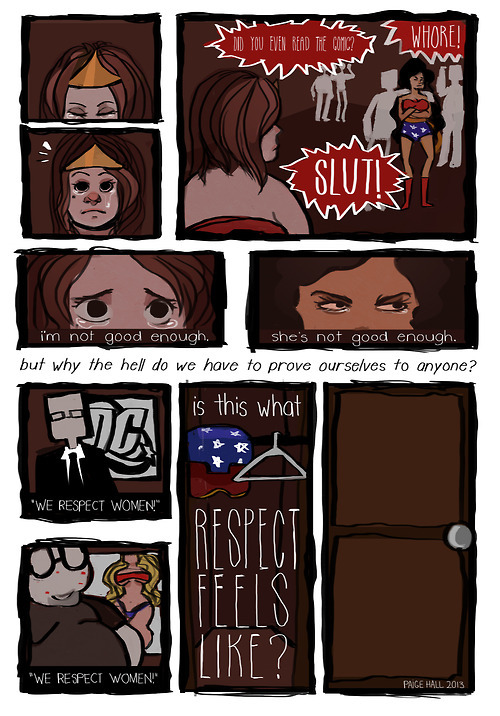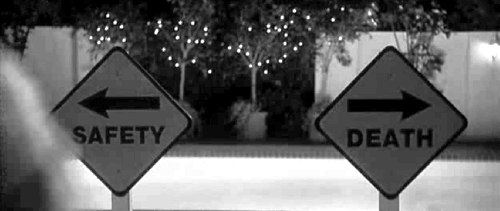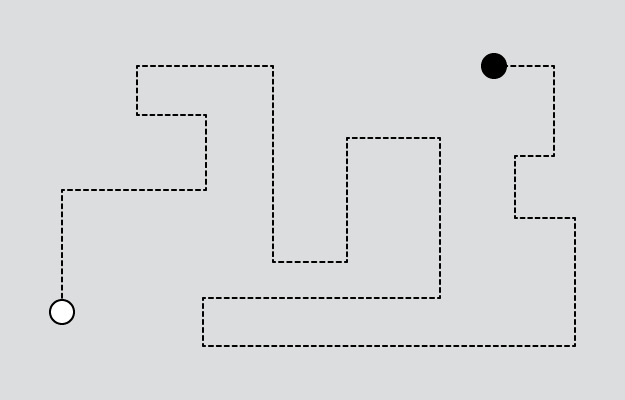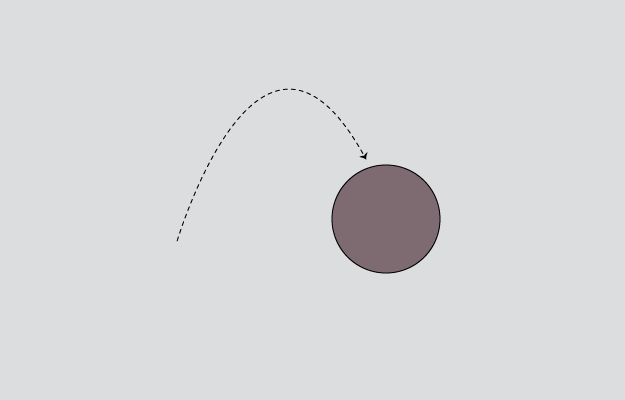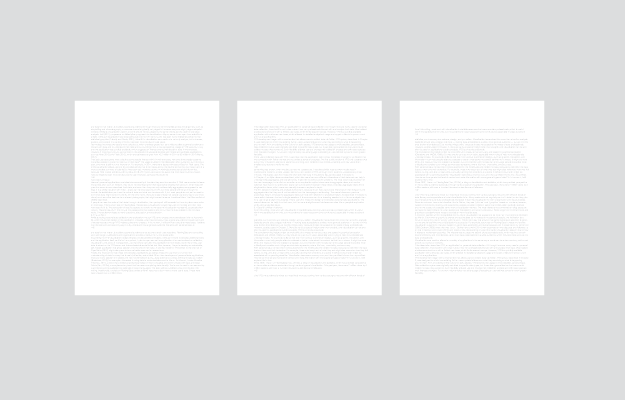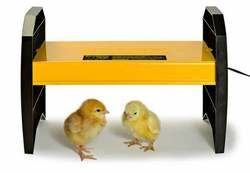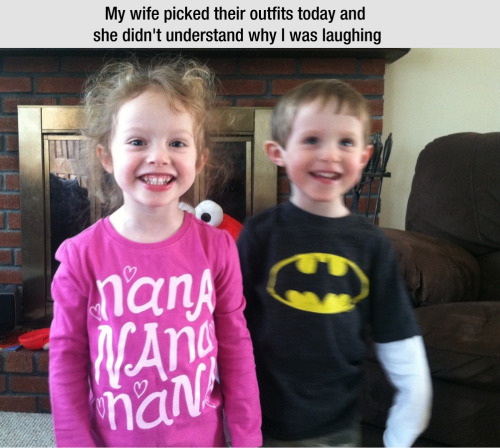 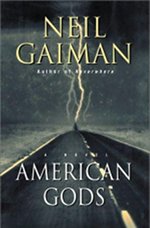
|
American Gods by Neil Gaiman. Shadow Moon tries to rebuild his life after being released from prison, but gets caught up in a showdown between the old gods who came over to America with the country’s early immigrants and the new gods “of credit card and freeway, of Internet and telephone, of radio and hospital and television, gods of plastic and of beeper and of neon.” Musings about the role of technology in modern life and the meaning of death, set in the real and mythical American landscape. |
 
|
Cryptonomicon by Neal Stephenson. This long novel leaps between the story of a secret WWII Allied unit who try to keep the Nazis from discovering they have cracked their Enigma code, and the cryptanalysts’ grandchildren who seek to create a secure data haven in the modern age, and discover a far-reaching conspiracy in the process. |
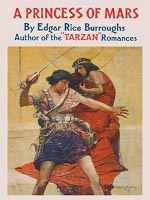
|
A Princess of Mars by Edgar Rice Burroughs. Readers said that the Princess of Mars is much, much better than the blockbuster movie-version flop John Carter. This book is the first in the Barsoom series, consisting of ten novels, the first five of which, it should be noted, are available for free at Project Gutenberg. This sci-fi adventure is said to have inspired some of the science fiction greats like Ray Bradbury, Robert Heinlein, and others. |
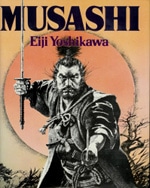
|
Musashi by Eiji Yoshikawa. This historical novel is a fictionalized account of real-life Samurai warrior Miyamoto Musashi as he seeks to master not only the Way of the Sword, but the path to honorable, spirited manliness. Musashi is famous in Japan for being a master swordsman and also writing the philosophy/tactical work, The Book of Five Rings, which is still studied today. |
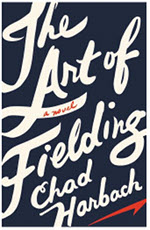
|
The Art of Fielding by Chad Harbach. This book received a ton of accolades when it was published in 2011, including being named in the NY Times Top Ten of the Year and Amazon’s Best Book of the Year. USA Today said this about it: “The Art of Fielding belongs in the upper echelon of anybody’s league, in this case alongside Bernard Malamud’s The Natural, Scott Lasser’s Battle Creek, and W.P. Kinsella’s Shoeless Joe.” I read this book earlier this year and really enjoyed it. It’s a coming-of-age story with baseball serving as the backdrop. One of the better modern novels I’ve read in a long time. |

|
Lord of the Rings Trilogy by J.R.R. Tolkien. This well-known fantasy favorite was unsurprisingly recommended numerous times by readers. Follow Frodo Baggins and his trustworthy friend Samwise Gamgee and learn about friendship, loyalty, dedication to a good cause, and many other manly virtues. You’ll also find one of the wisest characters in literature in Gandalf. J.R.R. Tolkien had one of the greatest imaginations of his time and created an entire LOTR universe, complete with new languages, maps of various lands, and even histories of how these lands came to be. If you’re interested in some of the Middle-earth back story, get your hands on The Silmarillion. |
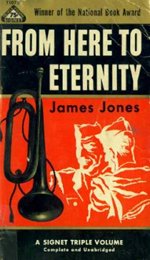
|
From Here to Eternity by James Jones. I read From Here to Eternity this year at my father-in-law’s suggestion. One of the best war novels I’ve read. The movie adaptation from 1953 happens to have made it onto our Top 100 Movies list, so be sure to check that out as well. Set in Hawaii, the novel is loosely based on author James Jones’ own experiences. |
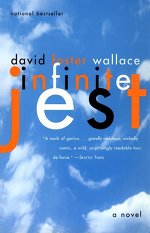
|
Infinite Jest by David Foster Wallace. This is a behemoth of a book, coming in at over half a million words, but from what people say, the effort is well worth it. Wallace took the title from a line in Hamlet (another work that all men should read), and although he committed suicide in 2008, has lately become regarded as one of the more influential writers of the latter part of the 20th century. As this is his magnum opus, it’s a great place to start. |
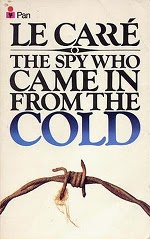
|
The Spy Who Came in from the Cold by John le Carré. le Carré is considered the greatest spy novelist of all time. Check out his most lauded work and what is often called the greatest spy novel of all time, The Spy Who Came in from the Cold. This particular novel was influential in informing the public about common Cold War espionage practices. Whereas James Bond novels and movies romanticize the world of spies, le Carre gives us brutal realism. |
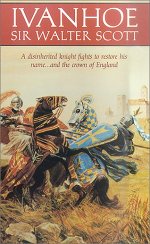 |
Ivanhoe by Sir Walter Scott. Many readers suggested checking out the work of Sir Walter Scott, who James Bowman called “the man who did the most to resuscitate honor for the modern era.” This work from 1820 is a great adventure story set in medieval times and deals with knighthood and chivalry. We also see appearances from Knights Templar and Robin Hood (Locksley, in this novel). What fella doesn’t want to read about that? Available for free as an ebook.
|
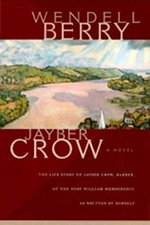
|
Jayber Crow by Wendell Berry. This book was recommended to me by small town advocate, Uncle Buzz. Turned out to be one of my favorite books of all time. A book about the life and unrequited love of a rural barber named Jayber Crow. From his barber chair, he learns about listening, community, life’s tough questions, and much more. The book really made me want to move to the country to become a barber. |
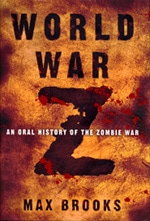
|
World War Z: An Oral History of the Zombie War by Max Brooks. This popular book is a fictional account of the zombie war, told from the point of view of a journalist who is conducting interviews many years later. It’s not so much blood and gore, but about the political and sociological ramifications of such a catastrophe. It’s set as a series of interviews, so it somewhat lacks a cohesive plot, but it’s still riveting. I’ve also heard the audio version of this is fantastic. You’ll want to read/listen to it before this summer’s release of the film version starring Brad Pitt. |

|
The Aubrey/Maturin Series by Patrick O’Brian. Reader Tom Smedely said this of the 20+ volume series: “Patrick O’Brian’s novels probe the mysteries of manliness. 20+ volumes starting with Master and Commander take us into a lost world of wooden ships and iron men. Even a patriotic American will find himself grieving the setbacks of the British navy during the War of 1812!” Even more awesome is that the series closely follows the heroics of real-life captain Thomas Cochrane. |
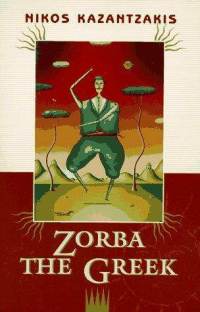
|
Zorba the Greek by Nikos Kazantzakis. One of the best novels on what it means to get in touch with your inner Wild Man. The narrator is a young intellectual who is in love with his books. After a stinging encounter, he decides to leave his books behind for a while, and do some self-discovery. You’ll be dancing and shouting “Opa!” like Zorba by the end. |

|
All the King’s Men by Robert Penn Warren. This 1947 Pulitzer winner is one of the best pieces of political fiction ever written. It’s loosely based on the career of Louisiana governor Huey P. Long. Interestingly enough, the author said it was “never meant to be a book about politics.” Indeed, there are larger lessons about humanity to be learned, and this is a great example of how hubris can destroy a man. |
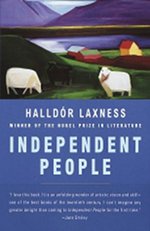
|
Independent People by Halldór Laxness. Reader Jordan explains this pick: “Iceland’s Laxness won the Nobel Prize in Literature the year after another great manly fiction writer, Hemingway. Independent People is his most important work about an Icelandic farmer who strives to be his own independent man when all else is against him. Laxness’ prose captures the harsh beauty of the Icelandic way of life and poetically blends myth and reality in this moving epic.” |
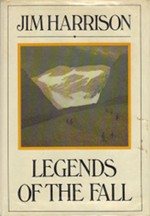
|
Legends of the Fall by Jim Harrison. You’ve seen the movie, now read the novella that it’s based on. Here’s what dannyb278 had to say about Harrison: “Nobody writes better concerning the 20th century male. Ignore the movie, the novella Legends of the Fall is one of the greatest works in modern American Fiction.” |
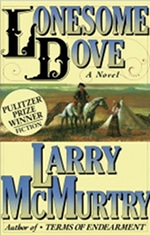
|
Lonesome Dove by Larry McMurtry. I kicked off 2012 by reading this classic Western. It’s a new favorite of mine, and I can’t wait to read it again in a few years. Another Pulitzer winner here, this is the third installment of the Lonesome Dove series of four novels (although the first published). This story of some retired cattle drivers carries lots of insight on what it means to be a man (look for a post in the future on that very theme!). |
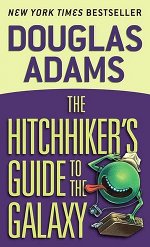
|
Hitchhiker’s Guide to the Galaxy by Douglas Adams. This oft-suggested sci-fi classic is supposedly one of the funniest books ever written. It’s been on my to-read list for while. Think I’ll get to it next. This wildly successful franchise includes six novels, video games, stage acts, TV series, movies, comic books, etc. Must have somethin’ going for it! |
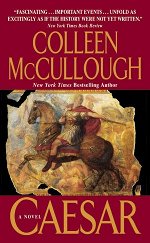
|
Masters of Rome Series by Colleen McCullough. If you’re a Roman history buff, reader Evan M. suggests checking out the Masters of Rome series. It chronicles the end of the Roman empire and the lives and careers of Gaius Marius, Lucius Cornelius Sulla, Pompeius Magnus, and Gaius Julius Caesar. There are seven books in the series. |
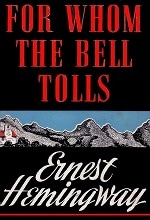
|
For Whom the Bell Tolls by Ernest Hemingway. Naturally, several readers suggested “anything by Hemingway.” If you’ve never read Hemingway, start with For Whom the Bell Tolls. In the novel, we follow the experiences of a young American dynamiter in the Spanish Civil War. Much of it is pulled from Hemingway’s own experiences as a journalist reporting on the war.
|
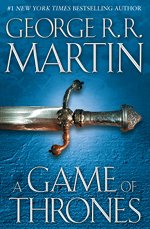
|
A Game of Thrones by George R.R. Martin. Thanks to HBO, many gents are now discovering this series. A Game of Thrones is the first of the five-part series (with more coming) which is a classic fantasy epic set in a world invented by Martin. The series is known for killing off main characters to keep you on your toes.
|
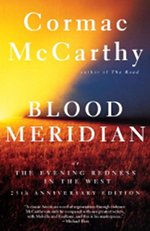
|
Blood Meridian or The Road by Cormac McCarthy. Lots of commenters said, “Anything by Cormac McCarthy,” and I couldn’t agree more. Blood Meridian explores the violence between Native Americans and the white settlers in the 19th century, while The Road follows a father and son as they walk through a post-apocalyptic America. Both terrifying and touching — one of the only books that has ever made me cry. |
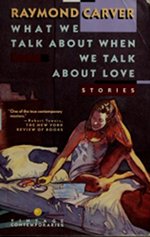
|
What We Talk About When We Talk About Love by Raymond Carver. This collection of short stories by Raymond Carver center on uneducated, seemingly normal American people. They have problems, and they aren’t all shiny and polished. His writing is often compared to Hemingway’s in its simplistic style. Anything compared to Papa is good enough for me! |

|
Raise a Holler by Jason Stuart. If you’re a Southern gent, Nick suggests Raise a Holler. According to Jedidiah Ayers, “It’s, more or less, The Hobbit re-imagined as a series of southern-fried crime misadventures.” |
| | |
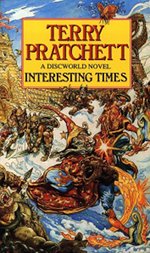
|
Discworld Series by Terry Pratchett. While it’s a young adult fantasy series, several people suggested the Discworld series by Terry Pratchett. Its 39 novels will keep you busy for a very long time, and there are supposedly more to come. As the title suggests, this world is a flat disc that is set upon the backs of four elephants. The books often focus and speak to a specific theme, such as religion, business, current events, etc. They also parody many common elements and cliches of fantasy and sci-fi literature. |
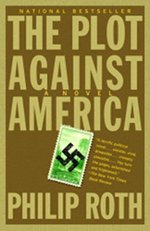
|
The Plot Against America and American Pastoral by Philip Roth. Reader Hal said, “Philip Roth is good and comes with the added benefit that you can then say you have read Philip Roth. The Plot Against America is a good way in.” American Pastoral won a Pulitzer for its portrayal of life in the Lyndon Johnson years, and The Plot Against America is an alternate history novel in which FDR is defeated by Charles Lindbergh in the 1940 election. |
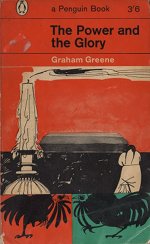
|
The Power and the Glory by Graham Greene. Reader Caleb S. suggested anything by Graham Greene. “He is a twentieth-century writer of novels and short stories, and his works are filled with men faced with complex moral conflicts. All of his novels are both entertaining and literary, which is a rarity these days, and perfect for someone looking to begin a fiction-reading habit.” Check out The Power and the Glory, which deals with the power struggle between the Roman Catholic church and the Mexican government, to get started with Mr. Greene. |
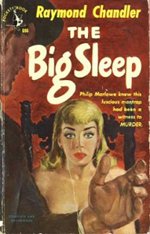
|
The Big Sleep by Raymond Chandler. Several readers suggested Raymond Chandler. If you like detective stories, you can’t go wrong with this master of the genre, who is praised as being the most lyrical of crime writers, as well as having some of the best dialogue in the genre. The Big Sleep (his first) is a favorite of mine. |

|
The Great Gatsby by F. Scott Fitzgerald. My favorite of all time. Read it again (yes, I’ll assume you’ve already read it at least once) before you go see DiCaprio take on the iconic role of Jay Gatsby at the movies. We learn about the fallacy of the American dream in this short 1920s classic. |
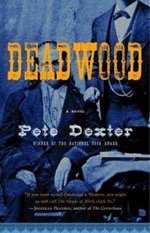
|
Deadwood by Pete Dexter. Marc has something in common with my dad. They both recommend western author Pete Dexter’s Deadwood, a fictional narrative of Wild Bill’s last days. |

|
Stranger in a Strange Land by Robert Heinlein. Reader Tom G. likes sci-fi writer Robert Heinlein. “His characters have, in a very large part, defined what I conceptualize ‘manliness’ to be.” If you’re a man who likes to think deep, Tom suggests Stranger in a Strange Land. It’s considered to be essential sci-fi, and tells the story of a Martian human who comes to Earth in early adulthood. |
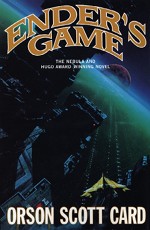
|
Ender’s Game by Orson Scott Card. Several recommendations for Ender’s Game. I finally got around to reading it this year. It’s a kid’s book, but it tackles some pretty adult themes. Another sci-fi classic, this novel is set during Earth’s future, when kids are trained for battle in preparation for an expected attack. It is still suggested reading in many military organizations, and has ballooned into a series of 12 novels and 12 short stories. |
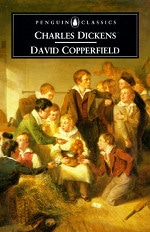
|
David Copperfield by Charles Dickens. Dickens had several votes, and is widely considered the greatest novelist of the Victorian era. That means you should read his works. You can’t go wrong with David Copperfield, which Dickens himself called his favorite. It’s a semi-autobiographical work that tells the life story of a boy who grows up in poverty in London, but escapes his miserable childhood to be become a successful novelist. Available free as an ebook. |

|
Gates of Fire by Steven Pressfield. A fictional account of the Spartan 300. Manly. This book is a military favorite and is taught at West Point, the Naval Academy, VMI, and Marine Corps Basic School. If those guys read it, so should you. |
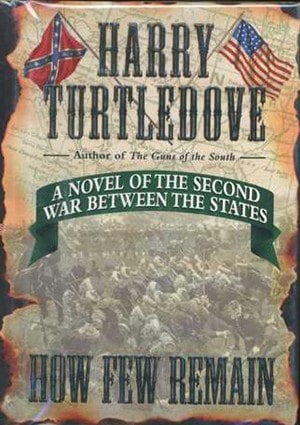
|
Southern Victory Series by Harry Turtledove. Gabe recommended alternate history writer Harry Turtledove. Find out what would have happened had the South won the Civil War, all the way through 1940, in the eleven novels of the Southern Victory Series. Hint: The world is a very different place; your globe would not have the same boundaries. |
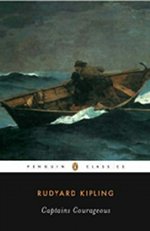
|
Captains Courageous by Rudyard Kipling. Hearty recommendations for anything by Rudyard Kipling, author of the manliest poem ever written, “If.” Most people suggested starting off with Kipling’s Captains Courageous. The story tells of a wealthy young boy’s transition to manhood after being saved from drowning by a fishing boat in the North Atlantic. Fun Fact: This novel was written while Kipling was living in Vermont, which is our favorite vacation spot. Free as an ebook.
|
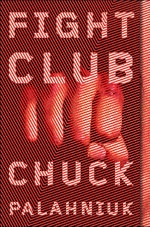
|
Fight Club by Chuck Palahniuk. An insomniac finds relief in a secret club. No explanation needed for this one. If you’ve seen the movie, it’s time to read the book. It’s also interesting to note the author’s intent in writing: “…bookstores were full of books like The Joy Luck Club and The Divine Secrets of the Ya-Ya Sisterhood and How to Make an American Quilt. These were all novels that presented a social model for women to be together. But there was no novel that presented a new social model for men to share their lives.” |
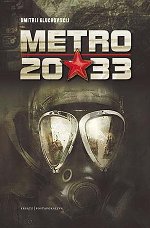
|
Metro 2033 by Dmitry Glukhovsky. Reader Jake Warner suggested Russian post-apocalyptic novel Metro 2033: “It’s a bit hard to find in English, but Dmitry Glukhovsky’s Metro 2033 is an excellent post-apocalyptic novel.” The name comes from survivors of a nuclear holocaust retreating to metro train tunnels, in which they begin their new way of life. The book has spawned a very popular video game as well. |
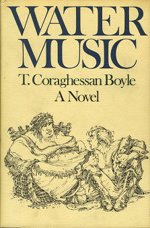 |
Water Music by T.C. Boyle. Water Music follows the wild adventures of Ned Rise, thief and whoremaster, and Mungo Park, a Scottish explorer, through London’s seamy gutters and Scotland’s scenic highlands, to their grand meeting in the heart of darkest Africa. Sounds good. |
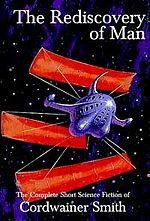
|
The Rediscovery of Man by Cordwainer Smith. Kent said everyone should check out the The Rediscovery of Man, a collection of sci-fi short stories by Cordwainer Smith. “His science fiction explores the nature of humanity after mankind has spread out among the stars and begun to diverge.” |
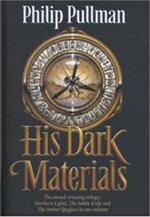
|
His Dark Materials by Philip Pullman. Grumpy Typewriter (fantastic pseudonym, by the way) is a fan of the His Dark Materials trilogy. You’ve probably seen the movie the book inspired, The Golden Compass. Grumpy Typewriter says the books are much better. Always are, always are. The epic trilogy is a coming of age story of two kids who travel through a series of alternate universes, and is said to be a re-telling and repudiation of John Milton’s classic, Paradise Lost. |

|
Lord Jim and Heart of Darkness by Joseph Conrad. Several readers suggested anything by Joseph Conrad. ”He speaks to the masculine in all of us to some extent,” said commenter Graham. If you’ve already read Heart of Darkness, try reading Lord Jim. There are also expanded versions of Heart of Darkness based on Conrad’s notes if you just can’t get enough. Conrad’s works are available free as ebooks.
|
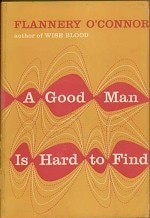 |
A Good Man Is Hard to Find by Flannery O’Connor. A few suggested Flannery O’Connor, a female author known for her Southern Gothic style. Her stories are pretty raw and highlight complex ethical and moral questions. For a good sampling of her work, pick up the collection of her short stories entitled, A Good Man Is Hard to Find.
|
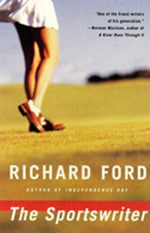
|
The Sportswriter by Richard Ford. This is a novel about a failed novelist turned sportswriter who experiences an existential crisis after the death of his son. Its sequel, Independence Day, won a Pulitzer, and there is also a third installment. |
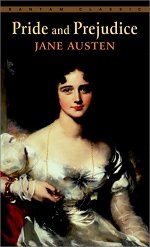
|
Pride and Prejudice by Jane Austen. You might be surprised, but several readers suggested Pride and Prejudice by Jane Austen. LG, a ninth-grade English teacher, said this about the book: “Although all of Austen’s novels are great, I think Pride and Prejudice especially is worth a man’s time to read for its examples of good, noble, self-sacrificing men from every social class, as well as its counter-examples. On the ‘bad guy’ side, you’ve got a womanizing manipulator, a father who shirks his duties and lives to regret it, a pompous moral weakling, and a man whose arrogance blinds him to his own faults.” If you still think Austen is too girly for your tastes, Chris suggests Pride and Prejudice and Zombies.
|

|
The Maltese Falcon and The Thin Man by Dashiell Hammett. Several recommendations for Hammett’s Sam Spade detective novels. Couldn’t agree more. Start off with The Maltese Falcon. If you need convincing, the New York Times calls Hammett the dean of the school of detective fiction.
|
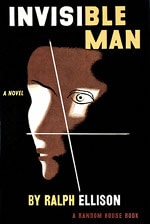
|
Invisible Man by Ralph Ellison. A book that begins with a boxing match and explores what it means to be an independent man when you feel pushed to conform to others’ stereotypes and expectations. |

|
Dune by Frank Herbert. Several readers suggested books by Frank Herbert for those who love sci-fi. Dune is a good place to start. Set in the far future, the Dune universe finds planets controlled by individual noble houses. The story focuses on the Atreides family as they gain control of a planet with a very valuable commodity. Although not confirmed, it is said to be the bestselling novel of all time in its genre. Like many sci-fi series, prequels and sequels have been added both by Herbert and others for a total of well over 20 novels. |
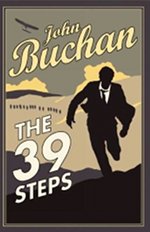
|
The Richard Hannay Series by John Buchan. Trev recommended the Richard Hannay series. “They were written during and about WWI and are great adventure stories.” There are five novels that star Richard Hannay, the first three of which are available for free as ebooks. |

|
The Stand by Stephen King. Lots of people suggested Stephen King, and The Stand got several recommendations. Find a more recent, uncut version. At first publishing, King’s editor forced him to cut nearly 400 pages. You’re getting into a 1,200-page book, but seeing the literal fight of good vs. evil in post-apocalyptic America is well worth it. His non-horror books are good too (e.g. The Green Mile and Shawshank Redemption). |

|
The Poe Shadow by Matthew Pearl. A novel about a young lawyer who tries to solve the mystery of Edgar Allan Poe’s death. All of Pearl’s novels deal with some kind of literary mystery. So if you like classic literature and modern mysteries, his works will be a win-win. |
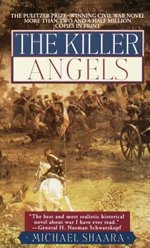
|
The Killer Angels by Michael Shaara. If you like learning about the Civil War, then you can’t go wrong with The Killer Angels. You’ll get to experience the Battle of Gettysburg from the point of view of General Lee. General Norman Schwarzkopf called it “the best and most realistic historical novel about war that I have ever read.” |
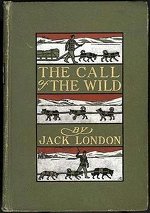
|
Call of the Wild by Jack London. Lots of hearty recommendations for Jack London. He wrote some pretty manly stuff, and his life is just as interesting as his prose. You probably read The Call of the Wild in middle school, but it won’t hurt to read it again. Also try White Fang and The Sea-Wolf. All of London’s works are available for free in the public domain. |

|
The Lottery and Other Stories by Shirley Jackson. “The Lottery” is one of the most haunting things you’ll ever read, and a must-read as perhaps the most well-known short story in American literature. |

|
The Professional by W.C. Heinz. A book about boxing that’s more than a book about boxing. It’s considered one of the greatest sports novels ever written. Ernest Hemingway himself said it was “the only good novel I’ve ever read about a fighter, and an excellent novel in its own right.” |
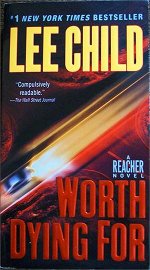
|
The Jack Reacher Series by Lee Child. If you like thrillers, several readers suggested the Jack Reacher series by Lee Child. Reacher is an ex-MP and drifts around the country with not much more than his heavy-duty boots and a pack. There are currently 17 novels, with another due out this summer. |
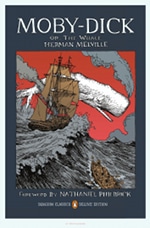
|
Moby-Dick by Herman Melville. A story about the perils of obsession. I think men relate to this book so much because we have a tendency to put up the blinders like old Ahab. It’s also frequently referenced in culture, and is regarded as one of the great novels of all time. For those reasons alone you should have this book in your bank of cultural knowledge. |
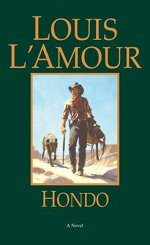
|
Hondo by Louis L’Amour. Several suggested “anything by L’Amour.” The man cranked out Western novels like a machine. Granted, his books aren’t Pulitzer material, but they’re definitely enjoyable and pretty darn manly. Great for road trips. Hondo is one of L’Amour’s most well-known novels. But with over 100 other works, you can stay busy for a good long while. |
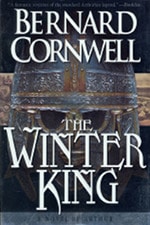
|
The Winter King by Bernard Cornwell. James recommends the Warlord Chronicles. It’s a trilogy about how King Arthur became a great warlord of Britain, and eventually brought peace and unity to the nation as they battled other foreign armies. |

|
The Leopard and the Cliff by Wallace Breem. Alex said this about The Leopard and the Cliff: “It’s about a British soldier in turn-of-the-century Afghanistan. Duty, honor, loyalty, courage under fire — powerful stuff that’s about as manly as you can get.” |

|
A Prayer For Owen Meany by John Irving. Apparently this book inspired the movie Simon Birch. Our narrator is set in the present and telling the story of his childhood with his best friend, Owen Meany, as they grew up in New Hampshire. We also get themes of religion, social justice, and fate. Not too shabby. Irving also wrote The Cider House Rules, which turned into another popular movie. |
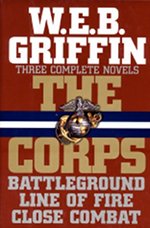
|
The Corps Series by W.E.B Griffin. Several suggested The Corps series, which includes 10 novels for your indulgence. It follows a tight-knit cast of Marines in the WWII and Korean War years. As would be expected of a series about the marines, the ideas of sacrifice, honor, and brotherhood come through in a major way. |
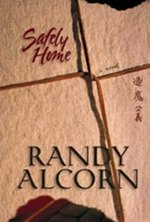
|
Safely Home by Randy Alcorn. For you Christian gents, Randy recommends Safely Home. It’s about the friendship between two Harvard roommates, one American and one Chinese, who reconnect in present-day China after 20 years. 100% of the proceeds for his books go towards missions work. |
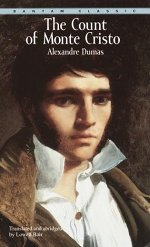
|
The Count of Monte Cristo by Alexandre Dumas. Alexandre Dumas got a manly vote of confidence from several commenters. The Count of Monte Cristo is a good place to start. It’s an adventure story primarily concerned with themes of hope, justice, vengeance, mercy, and forgiveness. At around 1,500 pages, prepare yourself. |
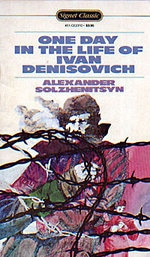
|
One Day in the Life of Ivan Denisovich by Aleksandr Solzhenitsyn. It’s about a single day of a prisoner in a 1950s Soviet labor camp. It was a major literary event in Russia, as it opened people’s eyes to the horror of Stalinist camps in a way that had never been so openly done before. |
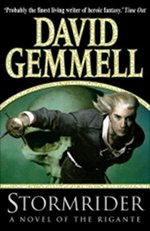
|
The Rigante Series by David Gemmell. If you like fantasy, Jamie suggests checking out the Rigante series. It includes four novels published between 1999 and 2002. One reviewer on Amazon describes it perfectly: “The main characters are typical Gemmell: passionate, resourceful and proud. Full of revenge and destiny, envy and greed. Gemmell’s plots often revolve around simple passions and motivations. Not one dimensional, but just driven by basic human nature.” |
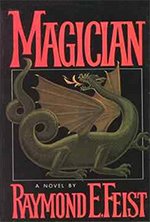
|
Magician by Raymond E. Feist. Mark Sweeny said this about Magician: “The best fictional read I had had is Magician by Raymond E. Feist. It was recommended to me by a chance conversation with the man sitting next to me on a long flight from the U.K. to America. I took a chance and read it, and I was not disappointed. I don’t think you will be either. Go on, take a chance!” The story is about Pug, an orphan boy who becomes the apprentice of a magician. As aliens invade their world, Pug gets caught up in the battle. This novel is the first part of a trilogy, and is often published in two parts: Magician: Apprentice and Magician: Master. |
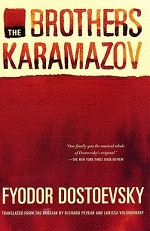
|
The Brothers Karamazov by Fyodor Dostoevsky. Lots of recommendations for Dostoevsky. The Brothers Karamazov seemed to be the most suggested novel to start off with. Its Amazon description says it better than I can: “Three brothers, involved in the brutal murder of their despicable father, find their lives irrevocably altered as they are driven by intense, uncontrollable emotions of rage and revenge.” This was Dostoevsky’s final novel, and was intended to be an epic series, but he died four months after publication. |

|
King Solomon’s Mines by H. Rider Haggard. Several said, “Anything by Haggard.” He was one of the best adventure writers of all-time. King Solomon’s Mines is a classic. Tromp through Africa and find, as the title suggests, King Solomon’s fabled treasure. Haggard supposedly wrote this piece over the course of just a few months because of a wager with his brother. Available free as an ebook. |
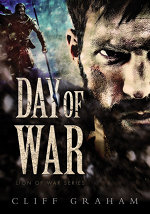
|
Day of War by Cliff Graham. Day of War is a fictional account of King David’s epic battles that are recorded in the Bible in 2 Samuel 23 and 1 Chronicles 11. I read this a few months ago and enjoyed it. |
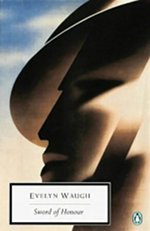
|
Sword of Honour Trilogy by Evelyn Waugh. Joe Bones had this to say about the Sword of Honour trilogy: “I cannot recommend Evelyn Waugh enough. His Sword of Honour trilogy is a complex, insightful and hilarious study of a man’s motivations in war. It is solidly rooted in the temporal but illustrated by the spiritual. It also features an exploding portable toilet and a one-armed Brigadier with an eye patch…” |
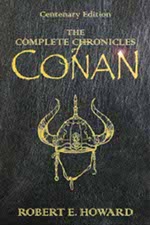
|
The Complete Chronicles of Conan by Robert E. Howard. thserry likes the Chronicles of Conan. “Most people write off Conan as being a silly Arnold movie, however, the original stories are masterpieces. The stories consist of everything from short 3-page (‘Frost Giant’s Daughter’) stories to full novels (Hour of the Dragon). My favorite of all the stories is ‘The Tower of the Elephant.’ Beautiful works, and life lessons on being your own man.” |

|
Joe Ledger Series by Jonathan Maberry. If you like zombies, and plenty of people do these days, you’ll like the Joe Ledger series. Start off with Patient Zero. The series currently has four installments, with three more planned through 2015. |
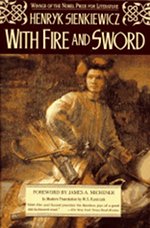
|
The Trilogy by Henryk Sienkiewicz. Harland likes anything by Henryk Sienkiewicz. “His works, especially The Trilogy, are fantastic novels of pride, repentance, honor, and epic love stories all set in the time when Poland was a democracy and set upon from outside powers.” Available free as ebooks. |
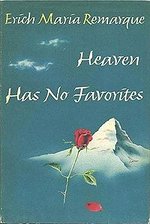
|
Heaven Has No Favorites by Erich Maria Remarque. A novel by the same guy who wrote All Quiet on the Western Front. It’s a story of passion and love with the backdrop of automobile racing.
|
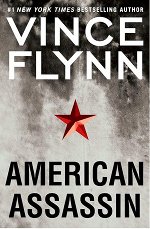
|
Mitch Rapp Series by Vince Flynn. The Mitch Rapp series follows a CIA assassin who focuses on thwarting Middle Eastern terrorist attacks on the U.S. Like Jack Bauer, Rapp is often willing to take extreme measures that go beyond allowable protocol. There are currently 14 Mitch Rapp novels. |

|
Shane by Jack Shaefer. Gary recommended anything by Jack Shaefer for those who like Westerns. Shane is good novel to start off with, and focuses on a mysterious gunslinger who arrives into town to help out a group of homesteaders in 19th century Wyoming. It’s a classic struggle for land and honor in the wide open expanses of the west. A great film too. |
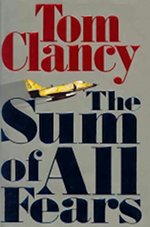
|
Sum of All Fears by Tom Clancy. Several commenters recommended anything by Tom Clancy. You’ve probably seen the movies and played the video games based off his work. It’s about time you read the novels. Great summertime reading. The Sum of All Fears is about a 20-year-old lost nuclear warhead that gets reconstructed by terrorists and set to be detonated at the Super Bowl. Can hero Jack Ryan save the day? You’ll have to find out yourself. |
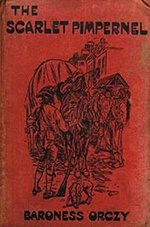
|
The Scarlet Pimpernel by Baroness Emmuska Orczy. A few suggested The Scarlet Pimpernel. It’s about a disguised superhero living in the aftermath of the French Revolution. This novel inspired the masked superhero genre and ultimately led to the likes of Zorro and Batman. Available for free as an ebook. |

|
2001: A Space Odyssey by Arthur C. Clarke. Lots of recommendations for the works of sci-fi great Arthur C. Clarke. 2001: A Space Odyssey is a classic (and a darn good movie). The movie and book were created in conjunction, with the book actually being released after the movie. A manned spacecraft is sent to Saturn to investigate an ancient mystery. The crew, however, must deal with the self-aware HAL 9000 robot in order to achieve their goals. Themes of technological dependency, nuclear war, and space exploration in general are heavy here. |
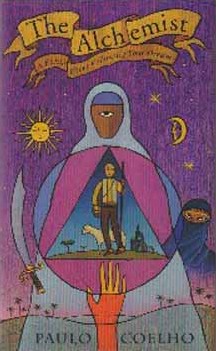 |
The Alchemist by Paulo Coelho. Journey with a young man through Egypt who is searching for treasure. Ultimately, the treasure he’s seeking ends up being much more valuable than gold. Learn about accomplishing your greatest dreams and how gold isn’t as valuable as it may seem. This allegorical tale has been translated into over 50 languages, a rarity. |
 |
The Bourne Trilogy by Robert Ludlum. Jason Bourne is about as manly as it comes on the screen. He’s even more so in the books. The action and intrigue never stops as Jason Bourne tries to figure out who he is, and why several different groups of people are trying to eliminate him. That’s a recipe for great reading. The series started with three novels, but has been continued on by a new author with an additional seven novels. I’ve only read the originals, so I can’t vouch for the new ones. |
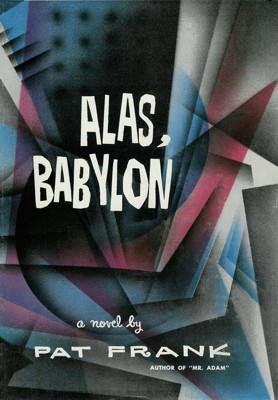 |
Alas, Babylon by Pat Frank. SG from the AoM community has this to say about it: “Read it in High School and I have gone back to it over the years. It is about surviving a nuclear war in the late 50s, based on what was out there then and what was ‘known.’ It is a good book even if some of it looks dated now. The hero really becomes a man in the course of leading his family, and later the town.” |
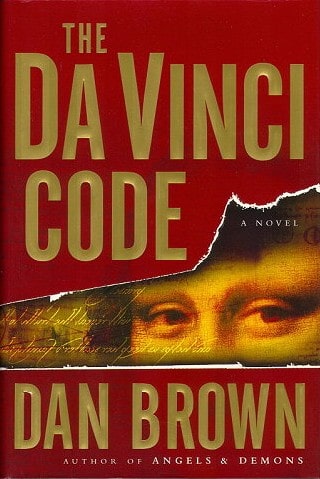 |
Robert Langdon Series by Dan Brown. Several recommendations for this uber-popular and also controversial series of books. Langdon is a professor who ends up in some ancient mysteries, mostly involving religious themes. The Da Vinci Code is the most well known, but start with Angels & Demons, the first of the series. The fourth novel, Inferno, came out this month and revolves around Dante’s Inferno. |
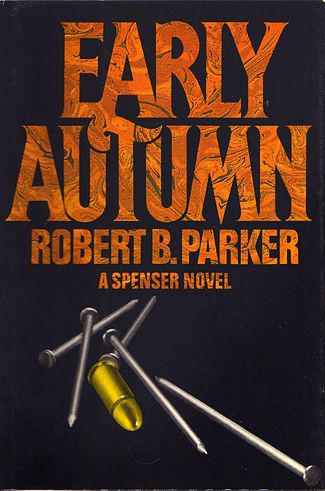 |
Early Autumn by Robert Parker. This one got a couple recommendations. A detective is charged with looking after a boy who is mired in a custody battle. We see what a true mentorship can look like, and how important role models are for children. There’s some detective stuff in there as well. |
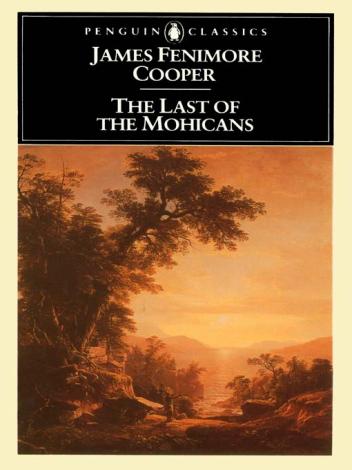 |
Leatherstocking Tales by James Fenimore Cooper. This pentalogy is best known for its second installment, The Last of the Mohicans, which takes place during the French and Indian War in which France and Great Britain battle for control of the North American colonies. Available for free as ebooks. |
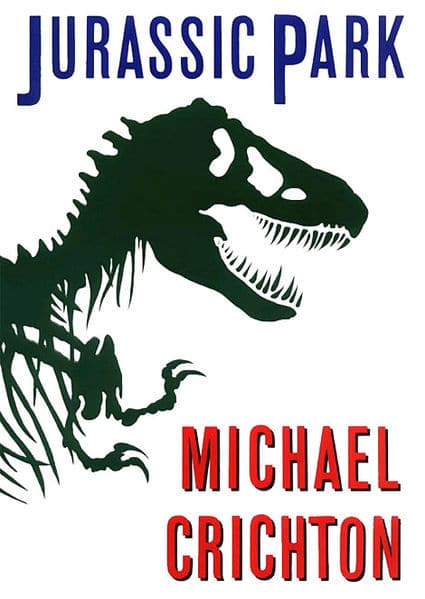 |
Jurassic Park by Michael Crichton. The movie that won three Oscars pales in comparison to the book that spawned it. All of Crichton’s novels are known for their heavy scientific research that often make the outlandish seem possible. Crichton, sadly, died much too young and won’t be able to give us any more novels. Start with Jurassic Park (which has some wild twists and turns that you don’t see in the movies) and read all of his other novels as well, which range from Viking lore to global warming. |
 |
The Shadow of the Wind by Carlos Ruiz Zafon. A young boy is taken by his father into an old library of forgotten and lost-in-time books that have been preserved by a select few. The young boy is allowed to select one book and take care of it for life. You get a story within a story as you also get to read parts of the book the boy selected. |
 |
Space Trilogy by C.S. Lewis. Lewis is more well-known for The Chronicles of Narnia, but I’ve always heard rave reviews about his Space Trilogy, where he takes a stab at sci-fi. Jump from Mars, to Venus, and back to Earth again. One reviewer likened it to a combination of Tolkien (for creating an imagined reality) and Stephen King’s The Stand (for its portrayal of good vs. evil). Not too shabby! |
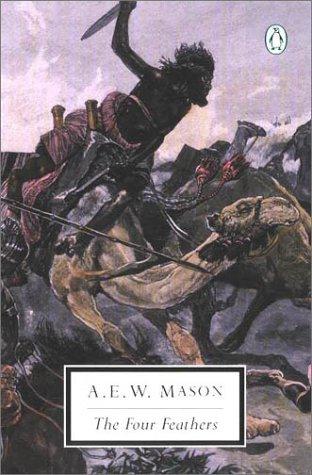 |
The Four Feathers by A.E.W. Mason. Learn about redemption when a young, cowardly soldier quits the army but redeems himself through acts of courage. As with any good adventure novel, there’s also a gal involved. Available for free as an ebook. |
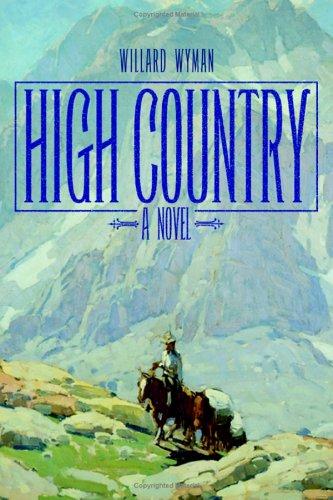 |
High Country by Willard Wyman. A good friend told me this about it: “High Country takes readers back in history to a time when men could still explore the mysteries of America’s rich natural lands. The story follows the life Ty Hardin, who learns the trade of packing in the Montana Rockies from a seasoned mentor, and in the process, evolves from boy to man. This book is for any man who appreciates the tradition of hard work, exploration, and enjoys stories of America’s expansion into The West.” |
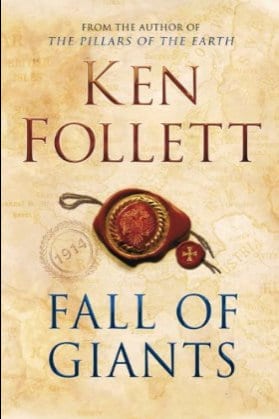 |
Fall of Giants by Ken Follett. This is the first part of Follett’s epic Century Trilogy. Winter of the World came out last year, with the third installment slated for 2014. At 1,000 pages each, it’s quite a ride. Fall of Giants starts in pre-WWI Europe and takes us all the way through the war while following a cast of unrelated characters who end up crossing paths in various ways. Beyond being just entertaining fiction, you get a real history lesson of World War I, and how folks from each side were likely feeling. Great read. |
 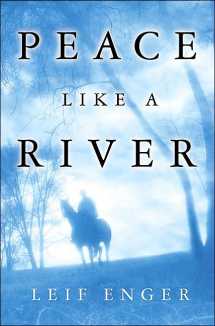
|
Peace Like a River by Leif Enger. Another spot-on recommendation from Uncle Buzz and a personal favorite of both Kate and I. When 11-year-old Rube’s older brother goes on the lam, Rube and his father and sister set out in search of him and must decide what to do when they find him. Full of clever references to historical and literary characters, and beautifully and almost magically written, the book touches on faith, family, and fatherhood and will stay with you for a long time after you read it. |
